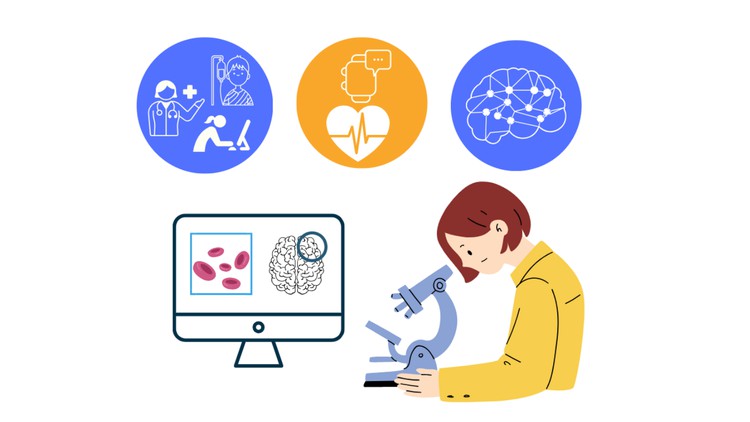Modernizing Clinical Trials: Framework, Technology, and Beyond
Clinical trials are the backbone of medical advancements, ensuring new treatments are safe and effective. However, the traditional framework of conducting clinical trials is often slow, costly, and laden with challenges. This course, “Modernizing Clinical Trials: Framework, Technology, and Beyond,” aims to revolutionize the process using cutting-edge technology and innovative frameworks.
Introduction to Clinical Trials
Clinical trials are research studies performed on people that are aimed at evaluating a medical, surgical, or behavioral intervention. They are the primary method researchers use to determine whether new treatments (like new drugs or diets) are safe and effective in humans. Often, clinical trials are used to determine if new treatments are more effective and/or have less harmful side effects than the standard treatment.
Challenges in Clinical Trials
Conducting clinical trials involves numerous challenges:
- Recruitment and Retention: Enrolling a sufficient number of participants and keeping them engaged throughout the trial.
- Data Management: Ensuring accurate, comprehensive data collection and analysis.
- Regulatory Compliance: Adhering to stringent regulatory requirements and maintaining transparency.
- Cost: High financial costs associated with long-duration trials and complex procedures.
Modernization Framework
The modernization framework presented in this course includes several pillars designed to address these challenges:
- Enhanced Participant Recruitment: Utilizing social media, online platforms, and patient registries to reach a larger pool of potential participants.
- Wearable Technology: Integrating wearable devices to monitor participants’ health metrics continuously.
- Artificial Intelligence (AI): Employing AI for data analysis, identifying patterns, and predicting outcomes.
- Decentralized Trials: Conducting trials without requiring participants to travel to a central location, making it easier for them to participate.
- Patient-Centric Approach: Ensuring that the trials are designed around the patients’ convenience and comfort.
Role of Technology
AI and Machine Learning: These technologies help in analyzing vast amounts of data more efficiently, predicting outcomes, and identifying potential issues early on.
Wearables and IoT: Devices like smartwatches and fitness trackers can provide real-time health data, reducing the need for frequent clinic visits.
Blockchain Technology: Ensures data integrity and transparency, enhancing trust in the trial process.
Case Studies
Cardiovascular Trials: Implementing wearables to monitor heart rate, blood pressure, and other vital signs continuously.
Neurodegenerative Diseases: Using AI to analyze brain imaging data and predict disease progression.
Gastrointestinal Studies: Applying AI to analyze microbiome data and wearable technology to track symptoms and medication effects.
Multi-Site Trials: Coordinating large-scale trials across multiple locations using decentralized frameworks and telemedicine.
Benefits of Modernizing Clinical Trials
- Efficiency: Reduced time and costs through streamlined processes and advanced data analytics.
- Accuracy: Improved data accuracy with continuous monitoring and real-time analysis.
- Patient Engagement: Higher recruitment and retention rates through patient-centric approaches and decentralized trials.
Conclusion
Modernizing clinical trials is not just about adopting new technologies but also about changing the fundamental approach to how trials are conducted. By leveraging AI, wearables, and a decentralized framework, we can overcome traditional challenges and pave the way for faster, more efficient, and patient-friendly clinical trials.
Who Should Take This Course?
- Healthcare Professionals: Looking to enhance their understanding of modern clinical trials.
- Researchers: Interested in integrating technology into their study designs.
- Data Scientists: Wanting to apply AI and machine learning in the healthcare sector.
- Regulatory Professionals: Aiming to stay updated with the latest compliance and ethical standards.
By modernizing clinical trials, we can ensure that medical advancements reach patients faster and with greater efficacy. Join us in this course to become part of the revolution in clinical research.

